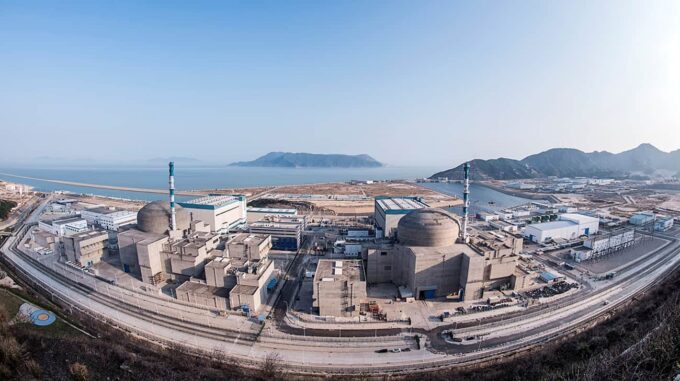China Approves Large-Scale Development of Nuclear Energy as Part of Its Transition to Clean Energy Sources

The country's State Council recently approved the construction of ten new nuclear reactors, marking a significant step in implementing an ambitious strategic program to reduce dependence on fossil fuels and lower atmospheric emissions. According to information obtained from the international news agency Bloomberg, this initiative is part of the fourth iteration of China's massive nuclear deployment policy, which is significantly transforming the country's energy landscape. It is expected that by the end of the decade, China will surpass the United States in nuclear power production, becoming the global leader in this sector. The overall cost of implementing these projects is estimated at approximately 200 billion yuan (about 27 billion dollars). Leading Chinese energy companies—China General Nuclear Power Corp. (CGN), China National Nuclear Corp. (CNNC), China Huaneng Group Co., and others—will carry out the main works. Data indicates that four new reactors will be built by CGN at their sites in Fangchenggang and Taishan, with two reactors each planned by the other corporations. Experts predict that by 2025, China's nuclear power capacity could reach at least 65 gigawatts, already exceeding last year's level of just under 60 gigawatts. By 2040, this figure is projected to grow significantly to 200 gigawatts, accounting for approximately 10% of the country's total electricity generation. These targets are outlined in a report by the China Nuclear Energy Association, which sets future development milestones for the sector. However, analysts note that realizing large-scale energy plans requires not only investments but also careful cost management. The cost of constructing a new reactor in China is considerably lower—around $2.7 billion—compared to similar projects in the US or Europe, where construction timelines and final costs tend to increase due to process complexities and additional expenses. A crucial factor is the support from state banks, which provide cheap loans and help reduce construction costs during the initial stages. Authorities in Beijing see the development of nuclear energy as a strategic element of the transitional model from fossil fuel dependence to more environmentally friendly and stable energy sources. This approach is supported by efforts to reduce emissions, supply the country with clean energy, and foster economic growth based on high-tech sectors. Despite some criticism regarding environmental risks and long-term consequences, China's government is actively advancing its nuclear power capabilities, demonstrating its ambitions to be a leader in clean energy on the global stage.

